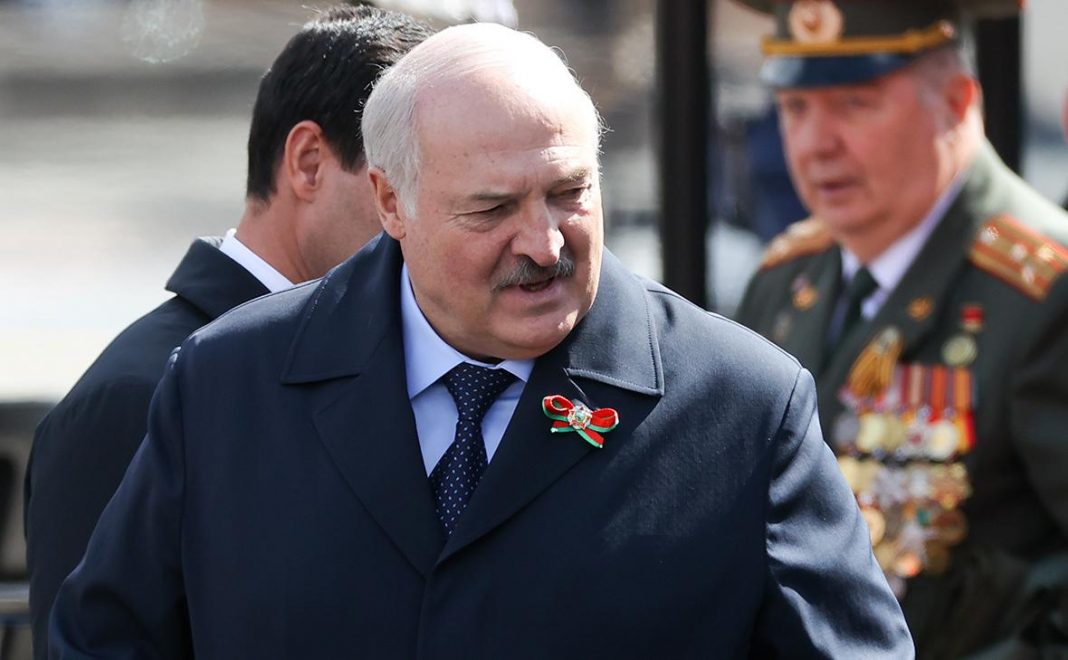Ascolta continues to follow the socio-political situation in Belarus and analyses key recent events. In this analytical material, we have identified the prominent trends as of April-May 2023. Earlier, we wrote about political trends in Belarus at the beginning of 2023.
This Content Is Only For Subscribers
The intensification of integration processes within the Union State marked April 2023. Starting from the first days of April, Alexander almost daily received guests from different subjects of the Federation in Minsk, discussing and signing agreements on regional cooperation with them. So, delegations from Tatarstan, St. Petersburg, and the Kaluga region visited Minsk. The “head” of the self-proclaimed “DPR”, Denis Pushilin, made a trip to Minsk.
An important point: Lukashenko refused to discuss any issues of institutional integration, focusing on improving the business and investment climate. This was largely dissonant with the statements of Putin and other leaders of the Russian Federation, who constantly focus on the need to strengthen institutional ties, starting from the points of the Treaty on the Union State of the Russian Federation and the Republic of Belarus.
At the same time, on April 3, the Head of the Foreign Intelligence Service of the Russian Federation, Sergei Naryshkin, paid a working visit to Minsk. According to official statements, the parties considered three issues:
a) assistance from the Russian Federation in equipping the Belarusian intelligence service,
b) the agents of the Western special services in Belarus,
c) the exchange of operational information.
According to Ascolta, it was about a multifaceted negotiation process between Russia, Belarus, China, Iran and several other countries regarding creating an intelligence association based on the “Five Eyes” principle initiated by the United States of America. The project was launched a few months ago during the visit of Nikolai Patrushev, Secretary of the Security Council of the Russian Federation, to Beijing. Thus, Naryshkin’s visit should be considered a more significant event than just a working trip. This visit entirely lies in the logic of creating the Eurasian “superintelligence”.
An interesting moment was the statement of the head of the KGB of Belarus, Ivan Tertel, during a meeting with Naryshkin:
“Our president is currently manually managing the national security system, considering all the acuteness. I report 2-3 times daily to our president about the current situation and the need to make certain decisions.”
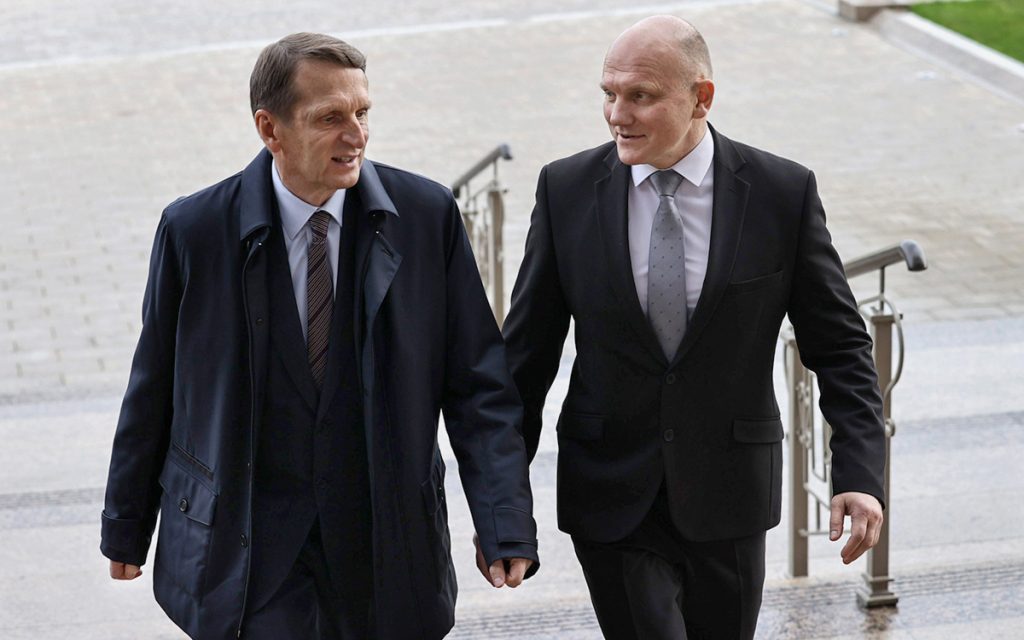
As a real continuation of this line, Lukashenko, on April 7, took the initiative to create a “union media holding” that would resist Western propaganda and subversive ideological sabotage:
“We have no right to lose the battle for the hearts and minds of our citizens on the print, television, radio or digital battlefields. The ideological confrontation along the West-East line will not weaken even after the guns fall silent. This is for a long time.”
Also, during a staff meeting with the security forces, Lukashenko called for “more severely suppressing attempts at subversive activities in Belarus.” In the middle of the month, while making a trip to the Grodno region (one of the border regions with Poland and Lithuania), Lukashenko said:
“Iron dictatorship is coming. I overstayed in Minsk. We are holding a meeting in Grodno: a complete separation of the government from the governors. The situation around Belarus is complicated. NATO’s military potential is being built up near the borders; provocations are happening on the border.”
And further: “We could not postpone the meeting. The situation forces us to react to the situation that is developing. Therefore, it was instructed by the government and the security bloc to prepare severe measures at the border to prevent various kinds of saboteurs from entering the territory of Belarus. Unfortunately, recently, such cases have become more frequent. Therefore, I would like to hear comprehensive proposals for counteracting.”
The KGB Chairman, the Minister of Internal Affairs and the Chairman of the Border Committee made presentations in closed session. According to reports, Ivan Tertel reported to the president:
“Poland and Ukraine pose the greatest danger to us. Groups of saboteurs and militants are trained in Ukraine. They are trying to create their network in Belarus. But we are also creating our network in Ukraine. Today we know about all the intentions of the Ukrainian leadership regarding Belarus. It is worth saying that Ukraine does not have its own plans but embodies what is being developed in Washington and Warsaw. But there are several subversive centres – mainly in Kyiv and the West of Ukraine, where these teams come from and where saboteurs are sent to Belarus. We know practically the names of all saboteurs and terrorists and the addresses of their relatives in Belarus. If sabotage activities against Belarus begin from the territory of Ukraine, we will carry out anti-sabotage actions on the territory of Ukraine.”
On April 5-6, Lukashenko visited the Russian Federation. The main topic of the visit is to review the progress in implementing the Main Directions for the Implementation of the Provisions of the Treaty on the Establishment of the Union State for 2021-2023 and union programs. In addition, the development of the Security Concept of the Union State was also considered.
One of the elements of the visit was a lengthy meeting between Vladimir Putin and Alexander Lukashenko. After the meeting, Lukashenko was visibly annoyed; he behaved pretty nervously. During the final briefing, the parties limited themselves to short statements and a statement that the economies need stability in the current conditions, relations between Russia and Belarus will remain fraternal, and an assessment of the international situation was also given.
Notably, during the meeting, Lukashenko did not confirm his participation in the Victory Parade on Red Square on May 9, 2023.
Lukashenko’s meeting with Russian Defense Minister Sergei Shoigu was indicative. The two main topics considered were security and guarantees for Belarus from Russia (“In the event of aggression against Belarus”), as well as combat training and coordination of a joint group.
The second half of April passed under the sign of frank populism. Lukashenko decided to conduct working trips to all regions of Belarus, organising visiting meetings of the government in all six regions of the republic. The main message is that the government has become detached from the real problems of the regions. The main emphasis was placed on the agricultural topic, spring field work, the future harvest, as well as the issues of the needs of agricultural enterprises and the marketing of products.
Among Lukashenko’s initiatives that deserve attention is the presidential decree to increase labour pensions by 5% from May 1, 2023 (an additional 78 million Belarusian rubles will be allocated for this. The number of pensioners in Belarus is 2.3 million people.
Another important initiative is the decree “On the Development of the High-Tech Park”, which provides for the priority development of the IT industry. Experts believe that the decree will create a field for forming an intermediary scheme for supplying Chinese chips, electronic equipment, etc., to Belarus with the subsequent possibility of reselling them to Russia. Ascolta sources are also sure that the last meeting between Putin and Lukashenko on April 5-6 was devoted to this topic.
After April 28, Lukashenko disappeared from the media space for a while. Then, on May 5, he appeared at a regular event, looked very sickly, read a short speech and generally spent about 10 minutes in front of the cameras. Then they started talking about Lukashenko’s illness and his possible resignation from the presidency. On May 9, he nevertheless flew to Moscow for the parade on the occasion of Victory Day, but he could not read the welcoming speech (Defense Minister Viktor Khrenin spoke instead). Also, Lukashenko did not stay for the gala dinner and flew to Minsk. Again, he looked sickly; his right hand was bandaged.
At the same time, two versions related to Lukashenko’s illness appeared. The first version the oppositionist Pavel Latushko voiced is that the president has infectious myocarditis. The second version: In the first days of May, Lukashenko underwent planned procedures related to the treatment of the thyroid gland, but at the same time, he caught the virus, which led to severe complications. This version is also supported by the fact that at almost the same time, Lukashenko’s press secretary Natalya Eismont fell ill with an acute respiratory disease.
In Belarus, they began to talk about the possible departure of Lukashenko from power or even about the possible near-death of the president. Early-formed influence groups have become more active in the republic, each of which has long claimed the right to nominate its candidate for the role of Lukashenko’s “successor”.
The Vitebsk Group began to send signals (including to the West) that its representative, Natalia Kochanova, was ready to fight for the presidency seriously. To strengthen her position, Kochanova held talks with the moderate opposition leader, Anna Konapatskaya, who was running for president in 2020. Konapatskaya is known as an economist with liberal pro-Western views, but she does not support the radical opposition. Thus, Kochanova signals to the West: I am ready to agree with the pro-Western prime minister if elected to the presidency. On May 11, a presentation of the Kochanova-Konapatskaya platform took place in Vienna.
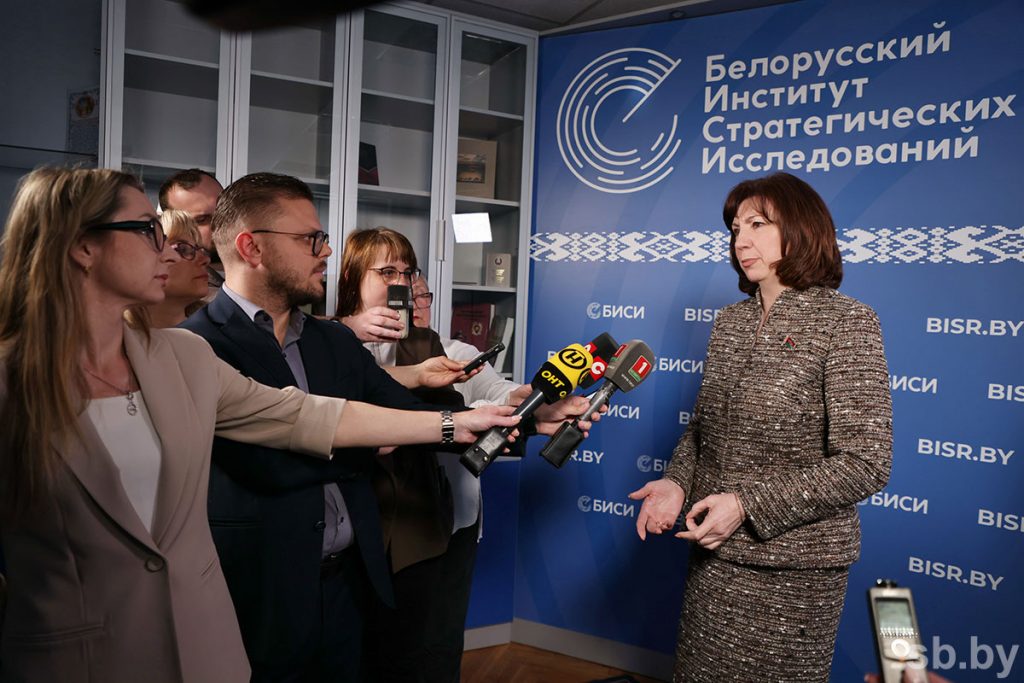
The second group (siloviki and the Lukashenko family, plus Viktor Sheiman, who joined them) are ready to nominate “a patriot, a military man with diplomatic experience.” Lieutenant General Andrey Ravkov, the former Minister of Defense of Belarus, State Secretary of the Security Council, and since November 2020, Ambassador of Belarus to Azerbaijan, best fits this description. Ravkov, although he comes from the Vitebsk region, does not belong to the Kochanova group. Ravkov’s nomination may mix the cards of Kochanova, who relies on the regional principle and the factor.
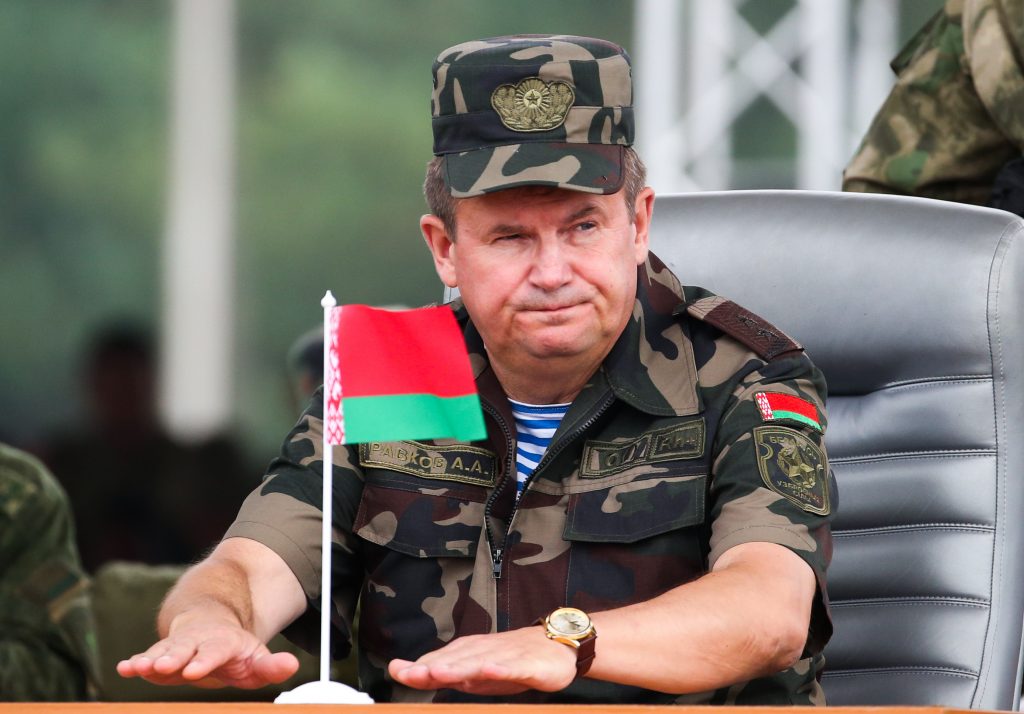
On May 15, Lukashenko decided to show that he was not going to leave power. He suddenly appeared at the central command post of the Air Force and Air Defense Forces of Belarus – officially to hear a report on the organisation and implementation of combat duty tasks in air defence. He called the reason that “three days after the events near us – I mean in the Bryansk region when four aircraft were shot down. We are forced to react. Since then, we have been on high alert with our troops.”
On May 17, Lukashenko spoke at the Parliamentary Assembly of the CSTO countries. In particular, he stated:
“After the recent entry into the NATO Alliance of Finland and the forthcoming entry of Sweden, we have once again witnessed the expansion of the North Atlantic bloc. Such actions put the world on a perilous brink of global conflict. Despite the rapid decline in living standards and the deterioration of economic prospects in European countries, the West is escalating international tensions and openly admits, with the voices of politicians, that it is preparing for war. Ukraine remains the central arena of confrontation, the battlefield on our continent.”
At the same time, Lukashenko called the information about the counter-offensive of the Armed Forces of Ukraine “misinformation” and also stated that “from my point of view, there is no “counter-offensive” and cannot be.”
However, on May 18, Defense Minister Viktor Khrenin reported that 20 kilometres from the border with Ukraine, the construction of several rows of concrete fortifications, which journalists called the “Khrenin Line”, had been completed to avoid a tank breakthrough of Ukrainian troops into Belarus (Lukashenko considers this option very likely).
On May 22, Alexander Lukashenko signed a decree pardoning Roman Protasevich, former editor of the opposition NEXTA telegram channel, who had previously been sentenced to eight years in prison. It is worth noting that this is not the first time the Belarusian president has made such a gesture towards the “opposition”. So, in 2015, Lukashenko announced that “based on the principle of humanism, today he made a decision to pardon and release from prison Nikolai Dedok, Igor Olinevich, Nikolai Statkevich, Yevgeny Vaskovich, Artem Prokopenko, Yury Rubtsov.” Mikalai Statkevich was a presidential candidate in the 2010 elections and received six years in prison for allegedly organising riots on Independence Square. From a specific term of punishment, he served four and a half years behind bars. Nikolai Dedok, Yevgeny Vaskovich, Igor Olinevich and Artem Prokopenko were defendants in the so-called “anarchist case” and received various prison terms. Yury Rubtsov was detained after the “Chernobyl Way-2014” for appearing in a T-shirt with the inscription “Lukashenko, go away.” He received a year and a half in prison.
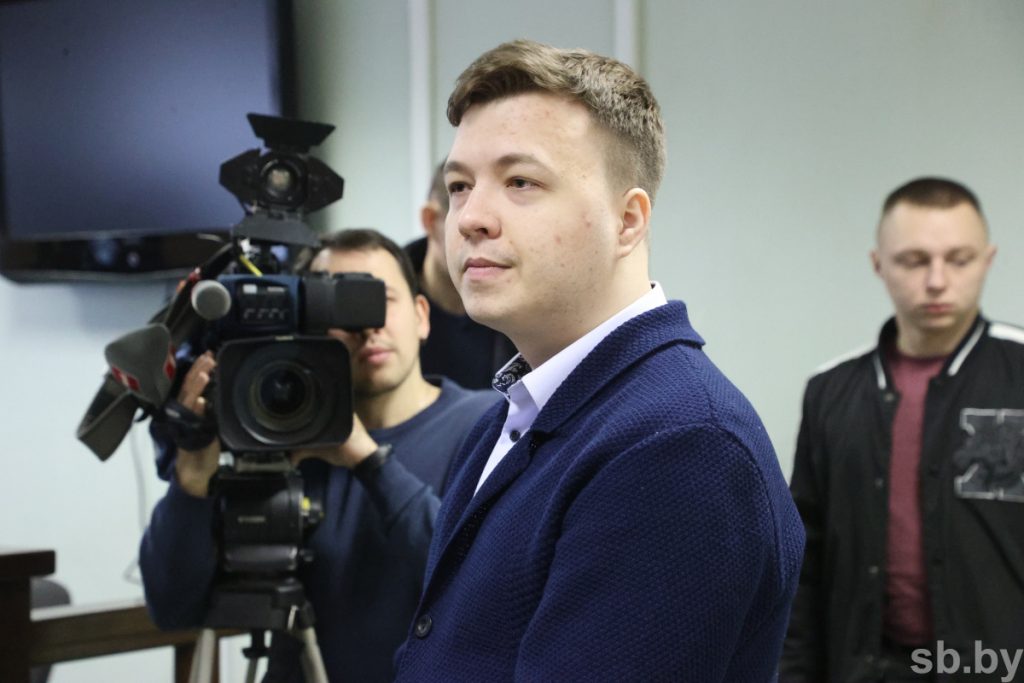
Also, in 2021, Lukashenko pardoned some of the detained and convicted participants in the mass riots in Minsk.
The next pardon decision addresses the Belarusian opposition’s message, to which Lukashenko shows that he is ready to “forgive” those who “take the path of correction.” Moreover, such decisions partially offset Lukashenko’s accusations of creating a dictatorship. At the same time, one should not count on severe changes in Lukashenko’s relations with the West.
On May 23, Lukashenko announced his next visit to Moscow, where he will take part in the EAEU summit and talk with Vladimir Putin.
From the international events of this period:
- On April 18, Lukashenko reported on developing relations with Zimbabwe and agreements with President Emmerson Mnangagwa. It is planned that Russia and the United Arab Emirates should join the agreed projects.
- On May 20, Lukashenko received Nicaraguan Foreign Minister Denis Moncada. The Nicaraguan side is interested in buying buses and agricultural machinery in Belarus.

